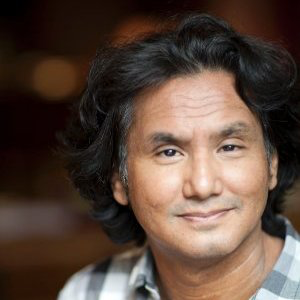It's convenient to describe a successful businessperson as a rock star, but in Jeet Singh's case, the guy really is a rock star.
Singh was born in Stockholm and lived in Madrid, Moscow, Saigon, Bogotá, Uganda, and the Himalayas before attending MIT. His international perspective gives him a broader view of what the world needs than the average entrepreneur.
In addition to founding Redstar Ventures and Redstar Media, Singh is also a highly acclaimed singer/songwriter. I spoke with him about what mistakes he sees entrepreneurs making repeatedly. He pointed out four.
So here's the first big mistake entrepreneurs make: They aim for too big an exit in order to attract venture capital funding.
"Venture capitalists are looking for billion dollar exits," Singh says. "As a result, entrepreneurs plan their business ventures to be huge enough to attract venture money. In reality, they would be much better off if they scaled down their expectations and aimed for something more modest."
Getting funded by venture capitalists might be the holy grail for most entrepreneurs, Singh acknowledges. But all too often, it's the wrong goal.
"VCs force entrepreneurs," he says, "who otherwise might have a more modest and more realistic expectation for building a business into shooting for the moon.
"They'll get the entrepreneurs to take a lot of money, but if the business doesn't scale quickly, the VCs will consider it a failure and shut it down."
The alternative, Singh says, is to have a company with 10 or 20 employees that's making solid money.
"Maybe you're not a billionaire," Singh says, "but you have a job, you're making money, and things are good. VCs have no interest in helping with that. Unless you're on a really fast track, they'll shut you down."
The second big mistake entrepreneurs make, according to Singh, is to pick a product without first considering the scale of the market.
"Get out of your own shoes," Singh says. "Most people don't look at the scale of the market first. Are there enough people like you who you think should be buying this product? Just because you want to build a product doesn't mean it's a good idea."
The third big mistake entrepreneurs make is to ignore the fact that large-scale businesses usually make much more money than small businesses.
"Much of business is B2B," Singh says. "For example, if you can sell widgets to Boeing, you're going to make a lot of money. Yet most young entrepreneurs have no idea that they should be thinking about B2B. They have no idea that that market exists at all."
Entrepreneurs, Singh suggests, tend to focus on consumer products, because they experience the world as consumers and not necessarily as providers of, as in the example he provides, with widgets to Boeing. Singh describes the B2B world as "opaque" to most entrepreneurs; instead of ignoring it, they should start to figure it out.
The fourth big mistake entrepreneurs make is to pick a market in which there are no investors.
"You can have the best idea in the world," Singh says, "but if there are no investors in that market, you're dead. No one's willing to fund it.
"And if there are no companies in that space who might buy you five or 10 years from now, you'll still be dead, because you won't be able to exit, no matter how good your idea is." Singh says that companies often overcome enormous odds to create the product they want to create, "only to realize there are only 20 people in the world who want to buy the thing. Or no one wants to fund it, or no one wants to buy your company from you.
"You've spent 10 years of your life slogging away trying to build a product," he says, "but you never stopped to ask 'will anyone want this product, and will anyone want this company?'
"Looking at outcomes first is a discipline that most entrepreneurs aren't taught," he concludes. "I learned it the hard way, and that's the thing I try to teach young entrepreneurs. Don't just think about what you think is going to be great, because you may not be very representative of the vast majority of people in the world, or even of the people living in the United States."
The Four Biggest Mistakes Entrepreneurs Make Every Day
The Four Biggest Mistakes Entrepreneurs Make Every Day
This post was published on the now-closed HuffPost Contributor platform. Contributors control their own work and posted freely to our site. If you need to flag this entry as abusive, send us an email.

